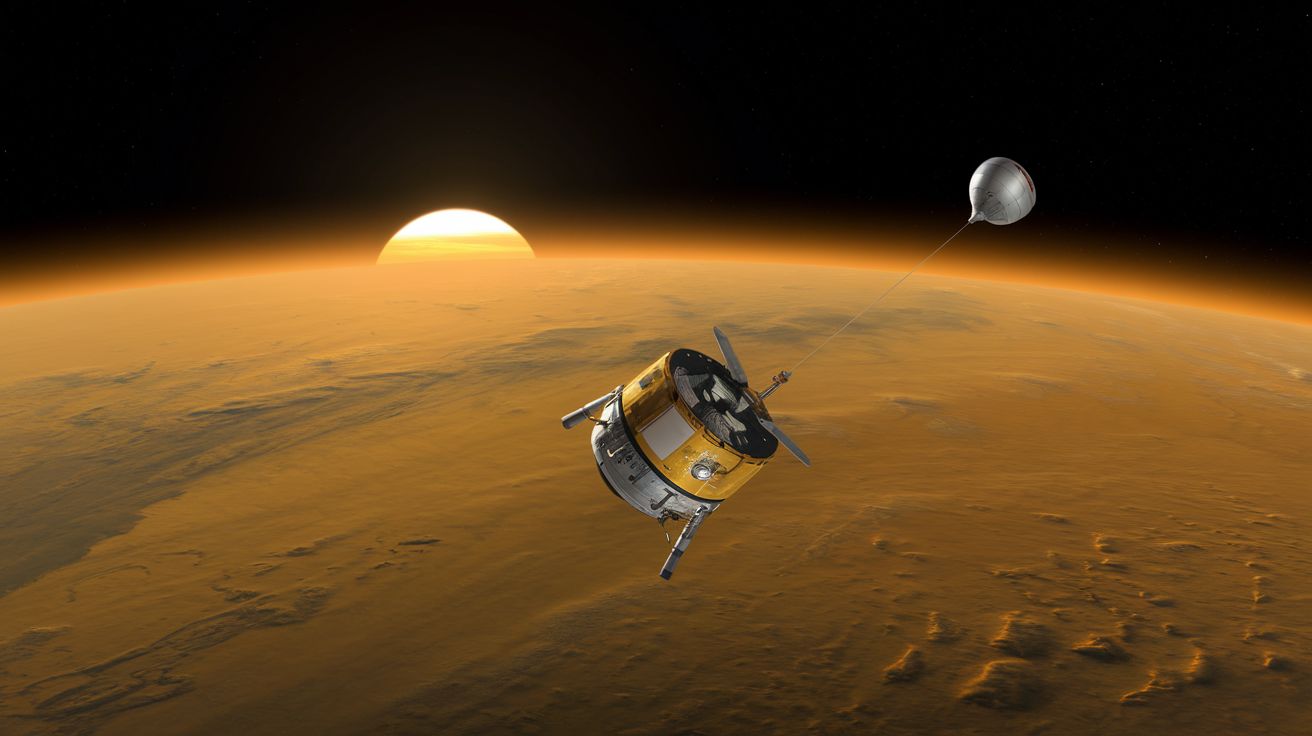A unique Chinese project: collecting a sample of Venus' atmosphere 🚀
Published by Cédric,
Author of the article: Cédric DEPOND
Source: Space News
Other Languages: FR, DE, ES, PT
Author of the article: Cédric DEPOND
Source: Space News
Other Languages: FR, DE, ES, PT
Follow us on Google News (click on ☆)
This mission highlights the growing interest in the neighboring planet, which has become a prime target for major space agencies.

Artist's rendering of a probe in Venus' atmosphere
China recently unveiled its space science roadmap through 2050. An ambitious program covering the Moon, Mars, Jupiter, and the Sun, with an unexpected addition: Venus. Originally planned for a simple orbit, the mission now aims to bring some of Venus' atmosphere back to Earth. This valuable sample could provide information otherwise unattainable.
Chinese scientists plan to analyze this toxic atmosphere in laboratories, a "Holy Grail" for planetary exploration far surpassing the on-site analysis capabilities. However, the technical feasibility remains uncertain. Concepts of floating balloons in Venus' hostile atmosphere have been considered since the 1960s, but no solution of this magnitude has yet been finalized.
The presentation of the plan took place at the International Astronautical Congress (IAC) in Milan. The chief engineer, Guoping Li, mentioned lunar, Martian, and Venusian missions as short-term priorities. In addition to Venus, China also plans to deploy space telescopes to study the Sun and explore exoplanets, underscoring its growing ambition in the space race.
This roadmap signals a shift in global space competition. While the United States maintains its leadership, Europe could find itself left behind in the face of China's advancements.
What makes Venus' atmosphere so unique?
Venus' atmosphere is one of the densest and most complex in the Solar System. Composed of 96% carbon dioxide, it generates an extreme greenhouse effect that makes Venus the hottest planet in our System, with a surface temperature of 475°C (about 887°F).
This thick atmosphere also contains layers of sulfuric acid clouds, making conditions extremely hostile to exploration. However, some scientists believe that higher-altitude, more temperate regions of the atmosphere could potentially harbor microbial life.
Studying samples of Venus' atmosphere would allow for a better understanding of this planet's complex chemistry, its formation, and its evolution. Researchers hope to detect organic compounds or signs of unusual chemical activity, potential clues to past habitability.
An analysis on Earth would offer unprecedented precision, far more detailed than what probes can provide on-site. The data collected could also help us better understand Venus' extreme greenhouse effect, a key to studying the atmospheres of other exoplanets.